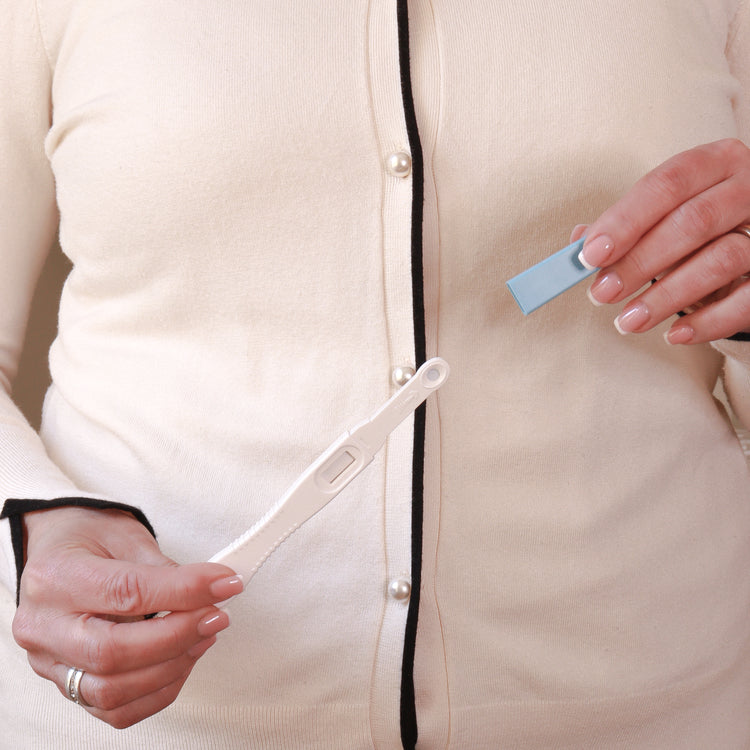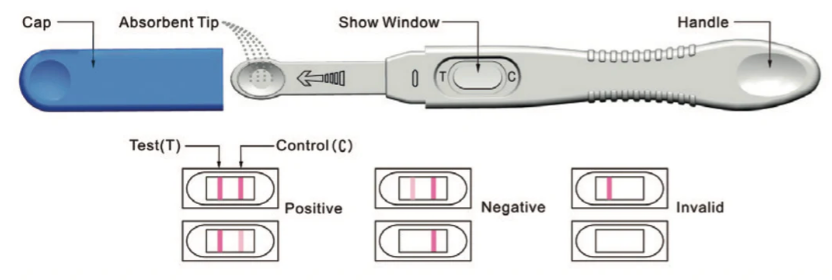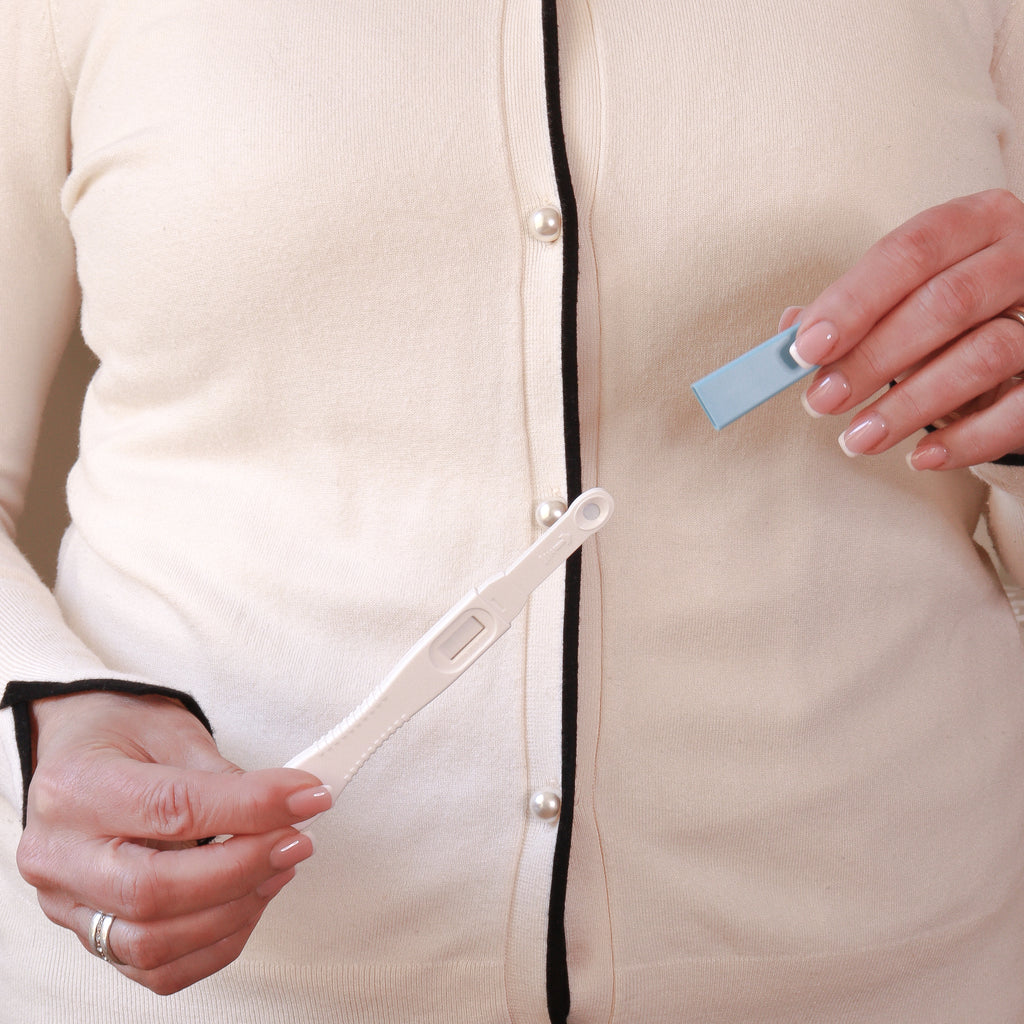




Made by women OB/GYNs
Science based
Award winning intimate care
100% vegan

Doctor's Corner
"From my over 50 years of clinical experience as an OB/GYN, I've met countless women that have been misdiagnosed with depression, burnout or other conditions, when in actuality, they were experiencing perimenopause.
To help women figure out the root cause of their common symptoms, we have developed this rapid at-home test. This will allow women to easily discover if symptoms they are experiencing may be associated with rising FSH levels that usually occur in perimenopause. Our aim is for women to use test as a helpful tool to give them a better understanding of what they are going through. This way they can better advocate for themselves and get the help they need at their doctor's offices."
-Dr. Gunvor Ekman-Ordeberg, OB/GYN, MD.,PhD

INTERPRETATION OF RESULTS
Important: To determine your result, compare the color intensity of the test line (T) with the control line (C).
POSITIVE: Two colored lines are visible, and the test line (T) is equal to or darker than the control line (C). This indicates that the FSH levels in the urine sample exceed the detection sensitivity of 25 mIU/mL. Note: A second test can be performed 5 to 7 days later to confirm the first positive result. If the second result matches the first, it indicates that your “normal” FSH levels have risen above 25 mIU/mL, suggesting that you may have entered the transitional phase known as perimenopause.
NEGATIVE: Only one colored line appears on the control line (C), or the test line (T) is visible but lighter than the control line. This indicates that the FSH concentration in the urine sample is below 25 mIU/mL.
INVALID: If no control line (C) appears after 10 minutes, or only a test line (T) appears (or no lines at all), the result is invalid and a new test should be performed. Make sure you have followed the instructions carefully.
FAQs
CAN I PERFORM THE TEST IF I HAVE HORMONE THERAPY (ESTROGEN THERAPY) OR TAKE ESTROGEN SUPPLEMENTS?
No, do not perform the test if you are on hormone therapy as this may give a false negative result.
CAN CONTRACEPTIVES (EG. BIRTH CONTROL PILLS/ HORMONAL IUDS) AFFECT THE TEST RESULT?
Oral contraceptives, hormone therapy or estrogen supplements can affect the test result and give false negative results.
THE TEST SHOWED POSITIVE BUT MY MENSTRUAL CYCLE IS AS USUAL - WHY IS THAT?
The clinical definition for the menopause (menopause) is the absence of menstruation for 12 consecutive months. The test result can therefore show positive even though your menstrual cycle is going on as usual. In this case, you are in pre-menopause, also called perimenopause.
ISN'T IT DIFFICULT TO MEASURE THIS - FSH DEPENDS ON WHERE IN THE CYCLE YOU ARE?
This test measures elevated levels of FSH (follicle stimulating hormone) in the urine. It is an immunochromatographic rapid test that detects FSH values above 25mlL/ml. FSH varies during the menstrual cycle and reaches its highest value of 25mlU ml in the middle of the menstrual cycle. When the body produces less and less estrogen, the production of FSH increases to start estrogen production in the ovaries again, and it is this increase that can be measured. It is more difficult to measure FSH in perimenopouse as it is o process. Therefore, the test contains 2 samples. For those who no longer menstruate, it is recommended that the sample be taken I week apart. For those who are still manstruating, the test should be taken during the first week of the menstrual cycle and the second test a week later. Measuring FSH via a blood test gives a more accurate level, but os a screening/indication this test is sufficient.










